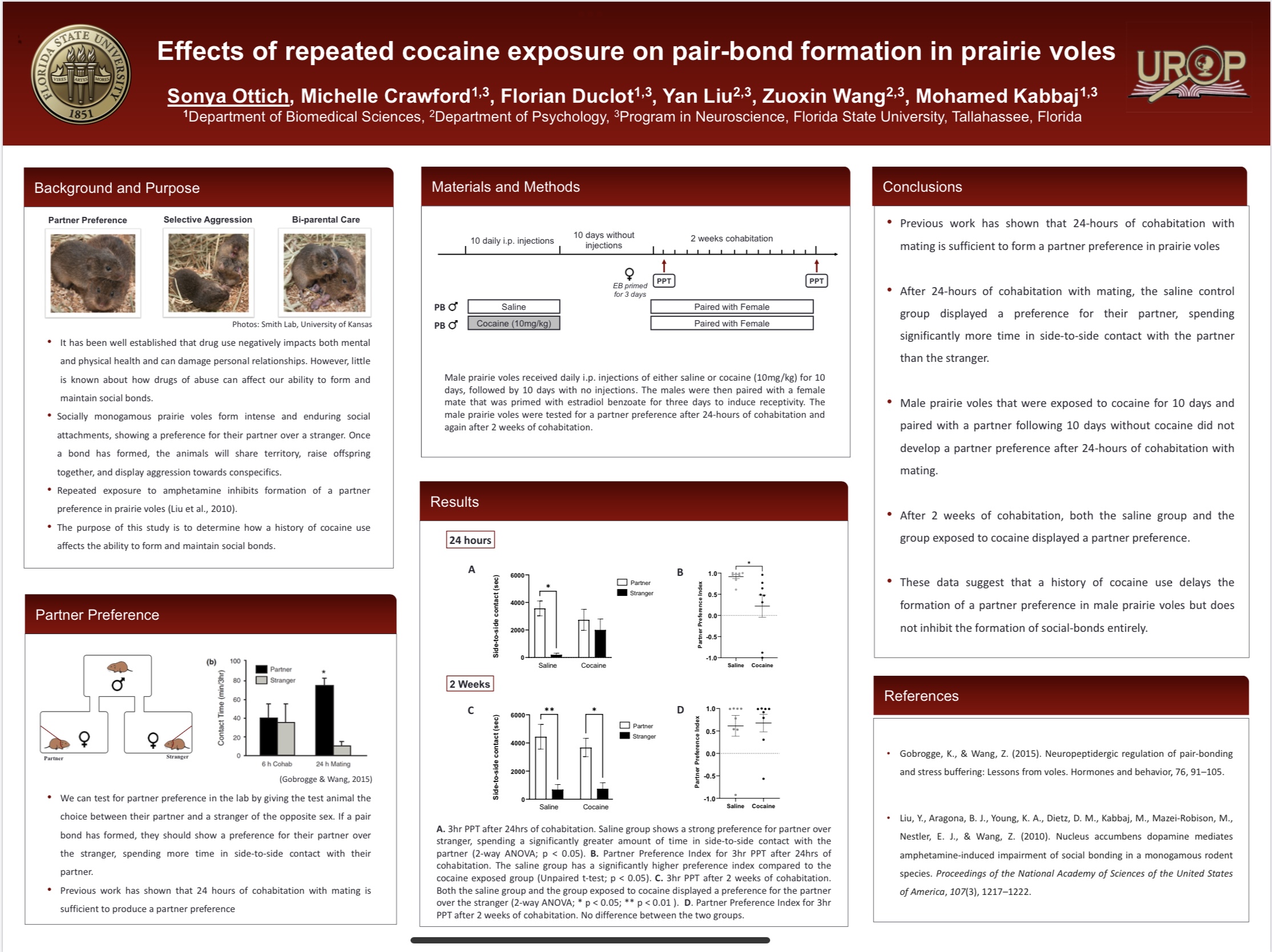Research Symposium
23rd annual Undergraduate Research Symposium, April 6, 2023
Sonya Ottich Poster Session 4: 4:00 pm - 5:00 pm/ Poster #371

BIO
My name is Sonya Ottich. I am a sophomore majoring in biomathematics at FSU. I am from Jacksonville, Florida. My career goal and passion is medicine. Right now I am working on neuroscience research at college of Medicine. I am very interested in immunology and allergy research, so I am considering completing an Md/PhD program in the future.
Effects of repeated cocaine exposure on pair-bonding formation in prairie voles
Authors: Sonya Ottich, Dr. KabbajStudent Major: Bio mathematics
Mentor: Dr. Kabbaj
Mentor's Department: Neuroscience Mentor's College: College of Medicine Co-Presenters:
Abstract
It has been well established that addiction negatively impacts physical and mental health and damages personal relationships. However, little is known about how drug use affects our ability to form and maintain social bonds. Repeated exposure to amphetamine and cocaine has been shown to inhibit pair-bond formation in socially monogamous prairie voles. In this study, male prairie voles received intraperitoneal (i.p.) injections of 10 mg/kg cocaine for ten days, followed by a ten day “extinction” period during which there were no injections. The males were paired with a partner and tested for a partner preference to determine how repeated exposure to cocaine affects their ability to form pair-bonds. Twenty-four hours of cohabitation with mating is sufficient for prairie voles to develop a partner preference. Male prairie voles that were exposed to cocaine did not develop a partner preference after twenty-four hours of cohabitation with mating. However, after two weeks of cohabitation a partner preference did form. This suggests that a history of cocaine use delays the ability to form a pair-bond in male prairie voles.
Keywords: Voles, pair-bonding, partner preference


